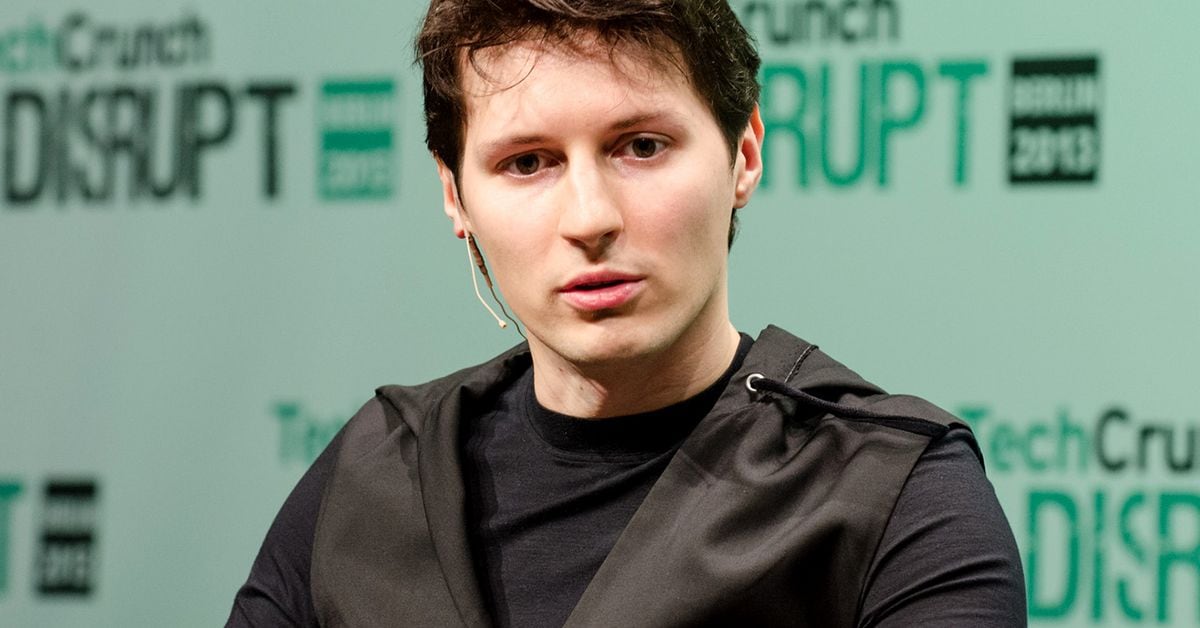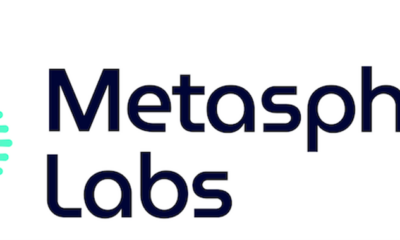Tech
The Prize for Owning Web3 Distribution Is Huge. Here’s Why It Won’t Go to Big Tech

For more than a decade, the blockchain industry has wrestled with a self-determined question: How can we go mainstream? Searching for the killer app or company that suddenly moves the masses towards crypto infrastructure has proven to be a daunting task. But unlocking product-market fit here represents more than a win for the consumer: It will signal a profound shift in how the Internet is structured and governed throughout our lifetimes. So who will be Web3’s power distributor, controlling wallets and the app store of the future?
The reward for owning Web3 distribution is huge but increasingly out of reach for the FAANG. Despite their vast resources and influence, these giants have so far been most successful in a supporting role, passively assisting the transition to a decentralized future, for example by ensuring convenient access to computing.
Moving to Web3 is a multifaceted challenge, not suited to companies that exploit data and advertising to generate big profits. The “world’s most innovative companies” are too entrenched in the muck of legacy business models, partners, and products, further slowed down by their own culture shock and short-termism of shareholders.
It’s clear that Big Tech doesn’t take cryptocurrencies seriously. They have never made public how their open source initiatives might be redirected to cryptocurrencies, nor have they purchased a significant portion of a base layer by acquiring a token, despite the associated governance rights that might come with it to influence the roadmap . You may be wondering what we expect from these legacy platform companies that unofficially rule the global web and the true value they provide to users versus themselves.
Despite ubiquitous distribution and seemingly limitless opportunity to hire emerging talent in blockchain, the story has always been that it is not a big enough addressable market opportunity today. After phasing out Libra due to regulatory backlash, Facebook the Metaverse unit has a net loss of $40 billion over the past three years and still has no chips on the table in the cryptocurrency space. Instead of becoming a distributor for Web3 users, they are trying to innovate their product suite to continue generating more than 95% of their revenue through ad sales, in part because of the widespread belief among regulators that consumers cannot be trusted with their own finances or data.
We are getting used to having our email filtered to help “tune the AI model,” and subconsciously, most consumers have agreed to give up privacy in exchange for modern conveniences. This further strengthens the reach and power of the FAANGs, but brings us no closer to implementing a truly modern technology like blockchain, which would materially improve the average person’s life.
We are increasingly ceding our intellectual property and that of our companies to these institutions will become a requirement as the AI arms race reinforces data-centric differentiation. This could be the moment that pushes the power structure into a mode of total greed, breaking it completely.
By design, the next era of the web will not be controlled by a handful of monoliths that refuse to accept a light-touch but powerful role in serving end users without overdoing it. The new internet requires fresh leadership that is willing to chart a very long-term path: a new generation of decentralized projects and startups based on the principles of user control and community governance that will help the industry adapt to the Web3 ethos.
Today’s developers are tireless in their attempts to regain power to challenge the exploitative practices of Web 2.0, operating systems, and app store constraints, so that in 10 years, decentralized organizations become the new, more benevolent ruling class and the FAANGs become service providers.
The existential threat to blockchain is that without a well-organized and strategic global marketing strategy, we will build it and no one will come. However, if we enlist a distribution partner that brings enough scale to make it profitable to build Web3 apps, developers will start testing fun things that could unlock a big enough prize to justify the risks of building for an app store that doesn’t yet exist. Developing a “killer app” matters less than being the distributor that unlocks the opportunity for developers to acquire many potential users.
A well-balanced incumbent is Telegram.
Building a base blockchain and associated community is a daunting task, and so far very few have managed to tap into a real consumer activity outside of cryptocurrencies. Every kingmaker seems to be aligning themselves with a new blockchain: Coinbase created BASE, FTX knighted Solana, Facebook attempted Libra, Amazon imagined its own chain for NFTs, and so on. The scalability of new-age base layers is impressive, but it won’t be enough to win on technology alone. Distribution and activity are the scaling solution; infrastructure is becoming easier to build and may be moving toward commoditization.
The revolving door will jam when developers start to smell low customer acquisition costs and a huge premium in global adoption: the Telegram mini-app opportunity. Telegram mini-apps are an open platform for new and emerging brands to distribute crypto-friendly games and apps. The platform supports seamless permissioning and crypto and fiat payments and allows projects to incubate, raise funds and market, all within the familiarity of the Telegram user interface. Today, The Open Network’s (TON) strategic ties with the Telegram messaging app combine both the technical capabilities to tackle Web3, the distribution power of a top 10 mobile application and, most importantly, the credibly neutral geographic launch pad for a consumer-centric approach to Web3. TON already boasts Web3 primitives like a wallet, an active DeFi ecosystem and tokens with a scalable Web2 user container and 900 million MAUs.
Telegram’s strategic pivot allows its app developers to align their revenue models with the long-term growth of the Web3 ecosystem. By providing critical distribution, a wallet, infrastructure, and supporting services, they can continue to generate substantial revenue while contributing to the broader goal of a decentralized internet. This symbiotic relationship benefits both the TON blockchain and Telegram, creating a more sustainable and inclusive digital economy. Telegram has always been on the fringes of Big Tech, successfully scaling a user-centric messaging app amidst fierce competition and following an unorthodox playbook: no ads or hardware moat, just great technology and user experience. Their mission-driven focus is akin to being religious about the user-centric approach to the new internet, aligning perfectly with the consumer and developer-driven revolution of Web3.
And while the U.S. is critical to the growth trajectory of most of today’s top 10 apps, for global crypto adoption, perhaps American MAUs are a “nice to have.” Strategically, Telegram’s go-to-market excludes the U.S. but includes the unbanked, which is more than four times the size of the United States population. While it would be great to frame this as a socially conscious decision and it could be, it also excludes the US by necessity due to the lack of regulatory clarity and SEC Case 2020. And the advantage demonstrated outside our borders is enormous: see the mini-program economy of Wechat which has grown to 5 million mini-programs since launch in 2017, reaching $400 billion in annual transaction volume via apps by 2021.
In response, Telegram has been boosting the intersection of basic financial services and the gaming economy. As the first platform to show a glimmer of greatness at the application level, it is finally awakening the Eastern Web3 developer community. Lately, it has been impossible not to notice the frenzy around Notcoin (35 million users), $TON entering the top 10 of all crypto tokens, and TVL rising to a new all times at the highest level Through STON.fi. And if the super-app use case isn’t entirely compelling, the ability to augment it with Web3 will be a challenge for both X and WeChat due to geopolitical pressures and the risk to their legacy businesses. Most recently this week, X launched a new payments platform which does not accept cryptocurrencies. The company had acquired a broadcast license for crypto payments last year. Despite his personal advocacy for blockchain, Elon Musk’s ambitions and obstacles with X illustrate the complexity and regulatory challenges inherent in adopting decentralized technologies within a centralized platform.
The TON ecosystem is the closest we have come to mainstream adoption. If successful, this could lead to larger companies like Telegram helping crypto apps converge with the mass market. If the benefits of blockchain are clear in the value proposition for the user, no one should think about whether a service runs on a blockchain or in the cloud.
As the Web3 revolution unfolds, it is clear that the race for control is not just about technology, but a fundamental reimagining of power, control, and trust in the digital age. Distribution is up for grabs in cryptography because Web3 is fundamentally at odds with the business and ethics of Web 2.0.
Remove irrevocable ownership of data, lose 30% App Store commissions. and the ability to train AI on your data, emphasizing portable identity and consumer-centric developer goals, and other general side effects of de-platforming, would drive a stake through the heart of Big Tech. It will be fascinating to watch Telegram’s role as a distributor and believer unfold as the rest of Big Tech grapples with questions of mission and purpose and decides whether to join the party in service of the protocols of the future.
Disclosure: CoinFund is an investor in STON.fia DEX on the TON blockchain and holds further exposure across the entire TON ecosystem.
Note: The opinions expressed in this column are those of the author and do not necessarily reflect those of CoinDesk, Inc. or its owners and affiliates.
Tech
Hollywood.ai by FAME King Sheeraz Hasan Promulgates a Complete Ecosystem that Unites Web3, Cryptography, AI and Entertainment for Spectacular Global Tech Innovation

The one and only FAME King Sheeraz Hasan is launching Hollywood.ai, a revolutionary platform designed to integrate the cutting-edge realms of Web3, cryptocurrency, AI, finance and entertainment. This revolutionary initiative is set to create a seamless, interactive and intuitive ecosystem where the world’s leading technology luminaries can collaborate on innovations, ultimately redefining the future of digital interaction.
Hollywood.ai represents the convergence of the most complex technologies of all time. Fusing Web3 principles, cryptocurrency utilities, AI advances, and financial machinery, Sheeraz’s platform aims to become the nucleus for innovation and modernization. It provides a high-tech environment where technology and creativity collide harmoniously, paving the way for new paths in the digital economy.
A defining feature of Hollywood.ai is the integration of cryptocurrency into the AI ecosystem, transforming AI into a tokenized asset with full cryptographic utility. Sheeraz’s novel approach presents new avenues to leverage the myriad capabilities of AI in the financial realm, unlocking unprecedented opportunities for developers and users alike. Through the amalgamation of AI and cryptocurrency, Hollywood.ai is paving the way for an incredibly interconnected digital space unlike anything seen before.
The platform’s design emphasizes the undeniable symbiosis between various technology sectors. Under Sheeraz’s careful orchestration, Web3 technologies facilitate decentralized collaboration, while AI tools offer enhanced potential for data analytics, content creation, and audience engagement. Additionally, the inclusion of financial innovations ensures rapid mobility of both monetization and investments, providing a holistic environment that meets the ever-evolving demands of the technology and entertainment segments.
Sheeraz’s Hollywood.ai is poised to become the premier hub for industry leaders, developers, and creators to support and empower the next generation of digital experiences. This initiative aspires to drive the emergence of new tools, applications, and services that set new standards for advanced engagement and interaction.
Known for making the impossible possible, Sheeraz envisions a future where global audiences actively participate in designing the next A-list stars from scratch. Hollywood.ai will allow users to watch their creations evolve from simple concepts to 3D talents that can act, sing and perform just like human actors.
The Hollywood.ai platform leverages AI technology to deliver personalized fan engagement, real-time sentiment analysis, and informed content creation. By combining cutting-edge AI capabilities with Sheeraz’s deep understanding of celebrity branding, Hollywood.ai gains immense control over public figures.
Undeniably, FAME’s number one strategist Sheeraz Hasan continues to cement his reputation as a pioneer in the fields of FAME and technology. The power and influence of this latest development brings him closer to total world domination.
Tech
Online Broker Futu Offers Cryptocurrency Trading in Hong Kong, With Nvidia and Alibaba Stock as Rewards

Futu Securities International, Hong Kong’s largest online broker, has launched retail cryptocurrency trading in the city, offering shares of Alibaba Holding Group AND Nvidia as a reward in an attempt to attract investors. Futu has begun allowing Hong Kong residents to trade Bitcoin and ether, the world’s two largest cryptocurrencies, directly on the brokerage platform using Hong Kong or U.S. dollars, the company announced Thursday.
The online retail broker said last month that it had received an upgrade to its securities license from the Securities and Futures Commission (SFC), allowing Futu to offer virtual asset trading services to both professional and retail clients in the city.
Futu’s move comes as Hong Kong seeks to boost its attractiveness as a business hub for virtual assets, with the city government launching a series of new cryptocurrency policy initiatives over the past two years, including a mandatory licensing regime for cryptocurrency exchanges.
In addition to offering cryptocurrency trading on its flagship brokerage app, Futu is also seeking a cryptocurrency trading license for its new PantherTrade platform. That platform is among 11 in Hong Kong that are currently “deemed licensed” for cryptocurrency trading, an arrangement that allows them to operate in the city while they await full approval from the SFC.
Hong Kong’s progress in becoming a crypto hub has encountered various challenges, including exit of the major global platforms and relatively low trading activity for cryptocurrency exchange-traded funds offered on local stock exchanges.
Futu is now offering a series of incentives to potential investors, amid a cryptocurrency bull market that has seen the price of bitcoin rise 45 percent this year.
Hong Kong investors who open accounts in August and deposit HK$10,000 (US$1,280) over the next 60 days can receive HK$600 worth of bitcoin, a HK$400 supermarket voucher or a single Chinese stock. e-commerce giant Alibaba. Alibaba owns the South China Morning Post.
By holding 80,000 U.S. dollars for the same period, users can get 1,000 Hong Kong dollars in bitcoin or a share of U.S. artificial intelligence (AI) chip maker Nvidia, whose shares have risen more than 140 percent this year.
A Futu representative said the brokerage firm will also waive cryptocurrency trading fees starting Thursday until further notice.
Futu is the first online brokerage in Hong Kong to allow retail investors to buy cryptocurrency directly on its platform. SFC rules require it to offer this service through a tie-up with a licensed cryptocurrency exchange. Futu is partnering with HashKey Exchange, one of only two licensed exchanges in Hong Kong, according to the representative.
Futu’s local rival Tiger Brokers also said in May that it had begun offering cryptocurrency trading services to professional investors on its platform following a license update. The SFC defines professional investors as those with more than HK$8 million in their investment portfolios or corporate entities with assets exceeding HK$40 million.
Tech
Tech Crash: $2.6 Trillion Market Cap Vanishes as ‘Magnificent 7’ Prices Stumble

A group of seven megacap tech stocks, often called the Magnificent 7, have lost more than $2.6 trillion in value over the past 20 days, or an average of $125 billion per day over the period. In total, these stocks have lost “three times the value of the entire Brazilian stock market.”
This according to the economic news agency Letter from Kobeissiwho noted on the microblogging platform X (formerly known as Twitter) that the Magnificent 7 batch “is worth as much as Nvidia’s entire current market cap in 20 days,” with Nvidia itself having lost $1 trillion from its high.
Source:Letter from Kobeissi on the X
The group, which includes Nvidia, Microsoft, Amazon, Apple, Alphabet, Meta and Tesla, has undergone a significant correction: in the last 20 days Nvidia has lost 23% of its value, or about $800 billion, while Tesla has fallen 19%, losing $164 billion.
Microsoft, Apple, Amazon, Alphabet and Meta all posted losses of between 9% and 15%, losing between $257 billion and $554 billion in market capitalization, wiping out a total of $200 billion more “than every single German stock market tock combined.”
Tech titans, which have outperformed the broader S&P 500 index since the market bottom of 2022, are now facing a reckoning as investors grow increasingly wary about the sustainability of their meteoric rise, with Nvidia taking the lead soaring 110% since the beginning of the year and over 2,300% in the last five years.
Earnings reports from these companies, starting with Microsoft and culminating with Nvidia in late August, will be closely watched for signs of weakness. Their performance could set the tone for broader market sentiment, with implications for everything from cryptocurrency to other high-risk assets.
Their poor performance comes after a leading macroeconomist, Henrik Zeberg, reiterated his forecast of an impending recession that will be preceded by a final wave in key sectors of the market, but which can potentially be the worst the market has seen since 1929the worst bear market in Wall Street history.
In particular, the Hindenburg Omen, a technical indicator designed to identify potential stock market crashes, began flashing just a month after its previous signal, raising concerns about a possible impending stock market downturn.
The indicator compares the percentage of stocks hitting new 52-week highs and lows to a specific threshold. When the number of stocks hitting both extremes exceeds a certain level, the indicator is said to be triggered, suggesting a greater risk of a crash.
Featured Image via Disinfect.
Tech
Trump Fights for Cryptocurrency Vote at Bitcoin Conference

To the Bitcoin Conference 2024 In Nashville, Tennessee, former President Donald Trump delivered a keynote speech.
Trump, the Republican presidential candidate, used the platform to appeal to the tech community and solicit donations for the campaign. During the conference, He said:
I promise the Bitcoin community that the day I take the oath of office, Joe Biden and Kamala Harris’ anti-crypto crusade will be over… If we don’t embrace cryptocurrency and Bitcoin technology, China will, other countries will. They will dominate, and we can’t let China dominate. They are making too much progress as it is.
Trump’s speech focused heavily on cryptocurrency policy, positioning it as a partisan issue. He said that if reelected, he would fire SEC Chairman Gary Gensler on his first day in office, a statement that drew enthusiastic applause from the audience. This statement marked a stark contrast to Gensler’s tenure, which has been characterized by rigorous oversight of the cryptocurrency industry.
The former president outlined several pro-crypto initiatives he would undertake if elected. These include transforming the United States into a global cryptocurrency hub, keeping all government-held Bitcoin as a “national Bitcoin reserve,” establishing a presidential advisory council on Bitcoin and cryptocurrency, and developing power plants to support cryptocurrency mining, emphasizing the use of fossil fuels.
Trump’s current embrace of cryptocurrencies represents a reversal from his stance in 2021, when described Bitcoin as a “scam against the dollar.” He also noted that his campaign has received $25 million in donations since accepting cryptocurrency payments two months ago.
The event featured other political figures, including Republican Senators Tim Scott and Tommy Tuberville, as well as Democratic Representatives Wiley Nickel and Ro Khanna. Independent presidential candidate Robert F. Kennedy Jr. also spoke at the conference.
Trump’s appearance at Bitcoin 2024 reflects growing support for his campaign from some tech leaders, including Tesla CEO Elon Musk and cryptocurrency entrepreneurs Cameron and Tyler Winklevoss.
While Trump has described the current administration as “anti-crypto,” Democratic Congressman Wiley Nickel said Vice President Kamala Harris is taking a “forward-thinking approach to digital assets and blockchain technology.”
This event underscores the growing political importance of cryptocurrency policy in the upcoming presidential election.
Kamala Harris and Democrats Respond on Cryptocurrencies
In a strategic move to repair strained relations, Vice President Kamala Harris’ team has initiated a dialogue with major cryptocurrency industry players. This outreach aims to restore the Democratic Party’s stance on digital assets and promote a more collaborative approach.
THE Financial Times reports that Harris’s advisors have reached out to representatives from industry leaders like Coinbase, Circle, and Ripple Labs. This move comes as the cryptocurrency community increasingly supports Republican candidate Donald Trump, reflecting growing dissatisfaction with the current administration’s cryptocurrency policies.
THE disclosure follows a letter from Democratic lawmakers and 2024 candidates urging the party to reevaluate its approach to digital assets. Harris’s team stresses that this effort is less about securing campaign contributions and more about engaging in constructive dialogue to develop sensible regulations.
The move is part of a broader strategy to reshape the Democratic Party’s image among business leaders, countering perceptions of an anti-business stance. Harris’ campaign aims to project a “pro-business, responsible business” message.
-

 Videos9 months ago
Videos9 months agoCrypto News: Bitcoin, ETH Price, CPI Print, PYTH, WIF & MORE!!
-

 Videos9 months ago
Videos9 months agoCrypto News: Bitcoin Price, ETF, ETH, WIF, HNT & MORE!!
-

 DeFi9 months ago
DeFi9 months agoMetasphere Labs announces follow-up event regarding
-

 Videos9 months ago
Videos9 months agoSolana price potential?! Check out THIS update if you own SOL!!
-

 Videos8 months ago
Videos8 months agoWho Really CONTROLS THE MARKETS!! Her plans REVEALED!!
-

 DeFi6 months ago
DeFi6 months agoPump.Fun Overtakes Ethereum in Daily Revenue: A New Leader in DeFi
-

 News6 months ago
News6 months agoNew bill pushes Department of Veterans Affairs to examine how blockchain can improve its work
-

 DeFi6 months ago
DeFi6 months agoDegens Can Now Create Memecoins From Tweets
-

 News6 months ago
News6 months agoLawmakers, regulators to study impact of blockchain and cryptocurrency in Alabama • Alabama Reflector
-

 Bitcoin6 months ago
Bitcoin6 months ago1 Top Cryptocurrency That Could Surge Over 4,300%, According to This Wall Street Firm
-

 Ethereum8 months ago
Ethereum8 months agoComment deux frères auraient dérobé 25 millions de dollars lors d’un braquage d’Ethereum de 12 secondes • The Register
-

 Videos8 months ago
Videos8 months agoCryptocurrency News: BTC Rally, ETH, SOL, FTM, USDT Recover & MORE!

















